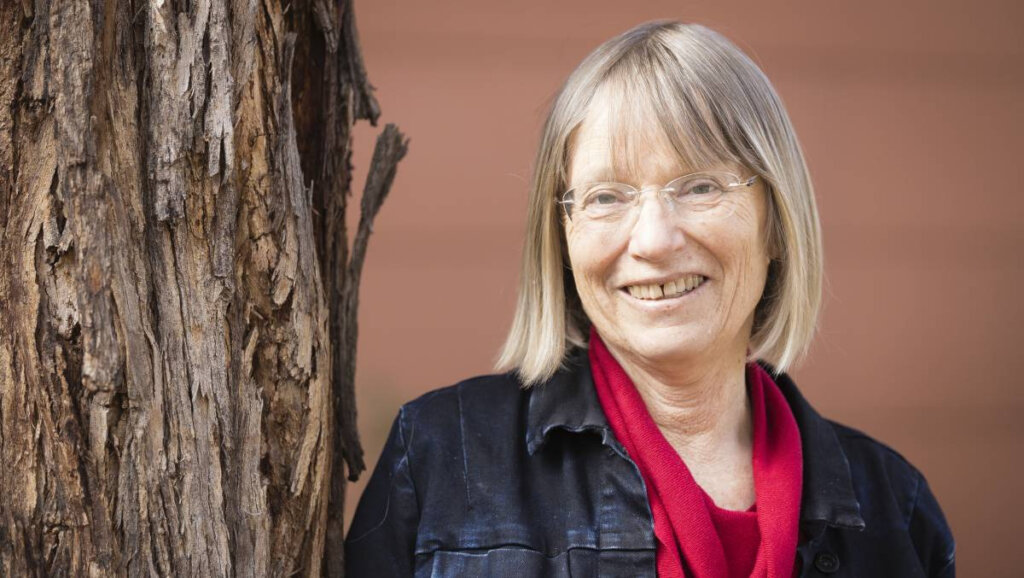Representing the Australasian Centre for Corporate Responsibility taking on the Commonwealth Bank Australia.
In October 2014, on behalf of shareholder group the Australasian Centre for Corporate Responsibility (ACCR), EJA filed a Federal Court case against the Commonwealth Bank of Australia (CBA).
This case aimed to set a precedent that would apply to future AGMs of Australian companies and improve corporate responsibility in relation to climate change.

Why was this case necessary?
Corporations are among the most powerful institutions in the world, and their power is growing.
Governments are held to account at the ballot box, but there are very limited ways that shareholders can hold corporations to account for important issues like climate change.
Corporate democracy is an important part of responsible corporate governance in most developed countries.
But Australia lags far behind the rest of the world in recognising shareholder rights.
Most other developed countries allow some form of shareholder resolution. The US, UK and Canada in particular have strong cultures of shareholder engagement, and shareholder resolutions are a longstanding and effective way for concerned shareholders to achieve change in the way a company does business.
Placing resolutions on the agendas of very large companies’ AGMs promotes awareness of issues and helps to change corporate behaviour. Resolutions on issues like climate change have been considered by company general meetings.
Even when a majority of shareholders do not support the particular resolutions, companies will often change their practices in response to the continued public pressure brought about by shareholder resolutions.

What is a shareholder resolution?
There are two kinds of shareholder resolutions: ordinary and special.
Special resolutions are to amend the company’s constitution and require 75% support from shareholders.
Ordinary resolutions require a simple majority of 50% and can cover a broader range of issues.
Overseas, social and ethical resolutions are typically ordinary resolutions. Ordinary resolutions avoid the need to change governance rules of the company when shareholders simply want a single issue considered. International practice shows that institutional investers are much more comfortable supporting ordinary resolutions than amending company constitutions.
Ordinary resolutions are a much more practical and accessible way for shareholders to express their concerns about practices of the company.
That tool for change is the ability of shareholders to put ordinary resolutions to general meetings of Australian companies.
Australian law is unclear about whether shareholders have this right, and companies have been acting on the assumption that they do not.
The ACCR has attempted to put an ordinary shareholder resolution to the AGM of Commonwealth Bank, asking it to report on the amount of climate change causing carbon pollution it finances.
The rejected resolution stated:
"That, in the opinion of the shareholders it is in the best interests of the company that the Directors provide to the shareholders by the time of the release of the 2015 Annual Report, a report prepared at reasonable cost and omitting any proprietary information outlining:
- (a) the quantum of greenhouse gas emissions that the company is responsible for financing calculated, for example, in accordance with the Greenhouse Gas (GHG)Protocol guidance;
- (b) the current level and nature of risks to the company from ‘unburnable carbon’; and
- (c) current approaches that have been adopted by the company to mitigate those risks."
Commonwealth Bank refused to put the resolution to shareholders in this form. (The ACCR lodged an alternative resolution to change the Constitution to provide for this disclosure which will be considered at the meeting.)
ACCR was represented by Environmental Justice Australia in a Federal Court case that determined what rights Australian shareholders have.

About the client
The Australasian Centre for Corporate Responsibility promotes just and sustainable corporate activity by encouraging ethical investment and facilitating informed shareholder engagement and advocacy.
The case
In October 2014, on behalf of shareholder group the Australasian Centre for Corporate Responsibility (ACCR), EJA filed a Federal Court case against the Commonwealth Bank of Australia (CBA).
The case sought a declaration that shareholders have a right to put ordinary resolutions about the management of the company to the bank’s Annual General Meeting – an important tool to hold corporations to account. Australian law was unclear about whether shareholders had this right and companies were acting on the assumption they do not.
The ACCR had attempted to put an ordinary shareholder resolution to the AGM of Commonwealth Bank, asking it to report on the amount of climate change causing carbon pollution it finances, which was rejected. The ACCR lodged an alternative resolution to change the CBA’s Constitution to allow for the disclosure of this information.
Shareholder resolutions are relatively rare in Australia. Only about a dozen have been filed in the last decade and the majority of these were special resolutions, seeking to change the constitution of the companies concerned.
This case aimed to set a precedent that would apply to future AGMs of Australian companies and improve corporate responsibility in relation to climate change.
The decision
On 31 July, 2015, the Federal Court ruled that shareholders do not have the legal right to put such resolutions to their shareholders.
This was a very disappointing result that left Australia far behind other developed countries such as the US, the UK, New Zealand and Canada, where shareholder resolutions are an accepted, healthy part of corporate culture and where they have proven capable of bringing about real change.
This decision means it is now harder for shareholders who own and ultimately control companies to hold the company accountable for harm the environment or other conduct that isn’t in the best interests of their shareholders or the community.

“We will continue to work with other shareholders and the community to improve the accountability of corporations and use the law to deliver better outcomes for the environment and the community”
– Caroline Le Couteur, Executive Director, Australasian Centre for Corporate Responsibility

Shareholder resolutions as agents for change
Shareholder resolutions, if found to be valid in the court case, will give the those who own shares in companies an alternative way of expressing their desire for change and making companies accountable for their conduct.
Resolutions very similar to the one proposed by ACCR were put to Bank of America and PNC Financial Services Group; they received 24% and 23% support respectively.
In the case of Bank of America, at today’s value, this represents share holdings in excess of $41 billion supporting the resolution.
Delta Airlines works to stop child trafficking (2011)
After a long campaign including shareholder resolutions, Delta Airlines agreed to implement policies condemning child trafficking, and train its employees to identify and report trafficking activities.
Bristol-MyersSquibb allows affordable drugs for HIV/AIDS (2013)
After shareholder resolutions, pharmaceutical giant Bristol-MyersSquibb agreed to share the patent for its HIV/AIDS drug Atazanavir with the Medicines Patent Pool, allowing the drug to be offered at low cost in more than 110 countries.
Exxon accounts for its carbon emissions (2014)
A group of activist shareholders put forward a shareholder resolution to oil giant Exxon. The company agreed to provide information to shareholders on the risks that their carbon-producing assets pose to their business model, their plans for a carbon constrained world, and how climate risks affect capital expenditure plans. In return for this commitment, the shareholders withdrew their resolution.

